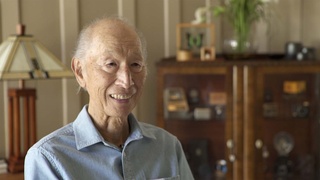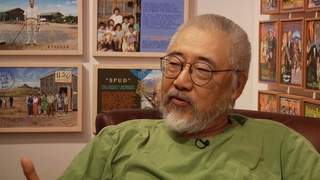Interviews
Hiding what happened in camp
I remember when, when the first...one of the people in our Blo...I think he was a kibei, and he felt really...you know, the Niseis didn't even treat the Kibeis right, I don't think. And, one day, they found his body on the race...I mean on the railroad track, and he was...the train had cut his head off. I mean, but they, they just hushed it up, 'cause they didn't want something like that to get out. But, so there were a lot of things that happened in camp that no one was even supposed to know about.
Date: June 16, 2003
Location: California, US
Interviewer: Karen Ishizuka, Akira Boch
Contributed by: Watase Media Arts Center, Japanese American National Museum.




